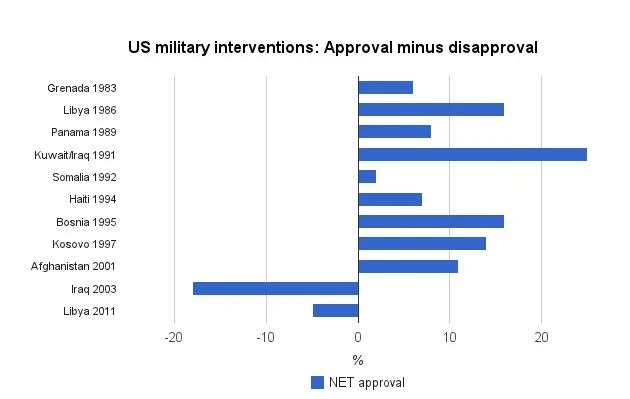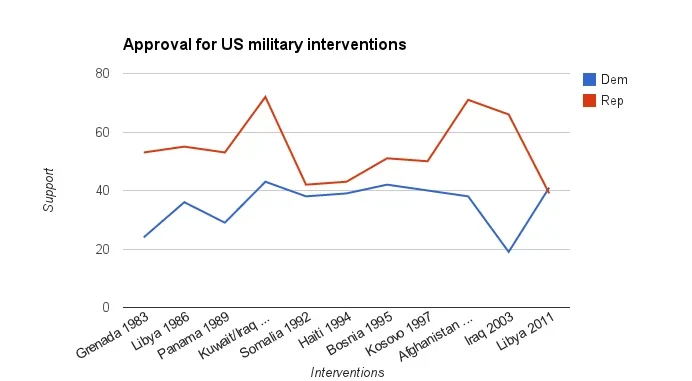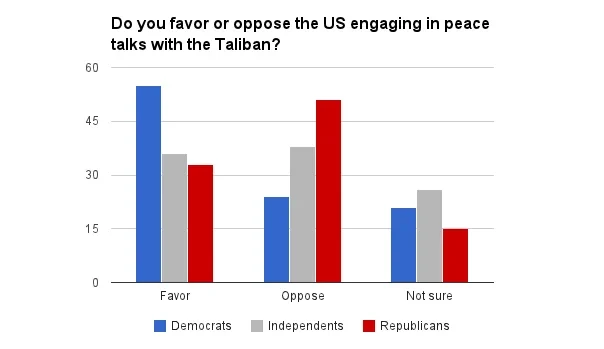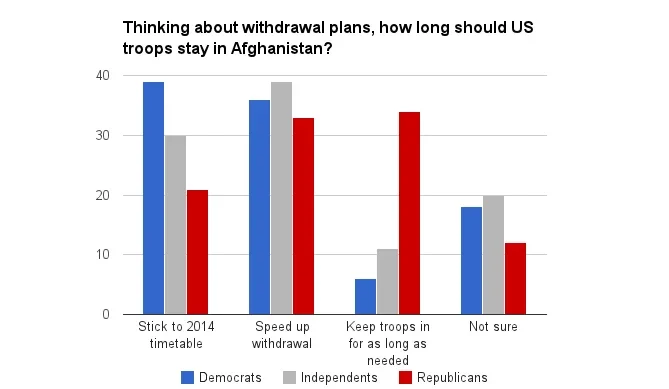
Americans still divided on Iraq War
Americans tend to support most US military interventions of the past 30 years, but Iraq is still highly divisive.
President Obama is heading to Congress in the coming days to seek approval for a military attack on Syria after the Assad regime used chemical weapons in rebel-held areas in Damascus that killed well over 1,000 people, many of whom were civilians. It is likely that the President will get the authorization he seeks, after both Nancy Pelosi and House Speak John Boehner backed the President.
The latest research from YouGov shows that Americans tend to support rather than oppose most of the country's military campaigns of the post-Vietnam era. The major exception to this is the invasion of Iraq which is still, a decade later, the most controversial of America's recent military interventions, with 32% approving of it and 50% disapproving, The second highest disapproval rating was for the airstrikes in Libya, with 38% of Americans disapproving and 33% approving of the 2011 intervention in the country's civil war.

For many of the interventions of the 1990s, support was largely bipartisan, but since the invasion of Afghanistan and Iraq approval has become more polarized, with Republicans being much more likely to support the wars of George W. Bush while Democrats (41%) are marginally more likely than Republicans (39%) to support Obama's war in Libya. On the whole, however, Republicans tend to be more supportive of military campaigns. For the Iraq War specifically, 66% of Republicans approve of the war compared to only 19% of Democrats.

When Americans are asked two key questions regarding the war in Afghanistan, the partisan divide continues, with Democrats (55%) being significantly more likely than Republicans (33%) to favor peace talks with the Taliban.

Democrats are also more likely than Republicans to support a fast withdrawal from Afghanistan, with only 6% thinking that troops should stay as long as necessary, compared to 34% of Republicans.
